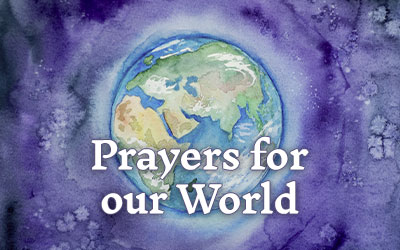Nigeria: 'Incessant killing more dangerous than Coronavirus'

Report on Nigeria to UK Parliament
“The incessant killing is more dangerous than Coronavirus” …The words of a community leader in central Nigeria – after coronavirus had reached his country – after an April attack in which nine people died, including a pregnant woman and her three year old.
His reaction is one of several testimonies – frequently harrowing to read, let alone to have experienced – that feature in an Inquiry into the scale of death and destruction caused by conflict occurring along the Christian-Muslim faultline running across the ‘Middle Belt’ of Nigeria, Africa’s most populous nation.
The Inquiry is published today, 15 June, by the All Party Parliamentary Group (APPG) for International Freedom of Religion or Belief of the UK Parliament; it has been taking evidence since autumn 2018.
(However, since the Coronavirus pandemic, violence appears to have grown even as international media have been otherwise occupied).
“APPG members have been alarmed by the dramatic and escalating violence in Nigeria characterised as the farmer-herder conflict. This violence has manifested along ideological lines, as the herders are predominantly ethnic Fulani Muslims and the farmers are predominantly Christians. There has been significant debate about what factors are driving and exacerbating this crisis. Therefore, the APPG launched a parliamentary inquiry to help develop a nuanced understanding of the drivers of violence”.
The resulting report ‘Nigeria: Unfolding Genocide?’ points out that the violence has claimed the lives of thousands of people and displaced hundreds of thousands more. It has caused untold human and economic devastation and heightened existing ethno-religious tensions. “The [age old farmer-herder] conflict has evolved from spontaneous reactions to provocations and now to deadlier planned attacks” it quotes the International Crisis Group as saying.
Despite the scale of the violence, the conflict is much less well known internationally than the 10 year long Boko Haram insurgency which has claimed over 30,000 lives (112 Chibok girls are still ‘missing’ after 6 years) and now its offshoot Islamic State West African Province’s (ISWAP) atrocities. These also feature in the APPG report and appear to have escalated in recent weeks and months. (In the latest Boko Haram-linked incidents this past week, over a hundred have died and hundreds more been injured; a UN humanitarian hub and a police station were reported burned down).
However, this APPG report echoes the Global Terrorist Index (GTI) 2019 by the Institute for Economics and Peace, which indicates that the primary driver of the increase in violence in sub-Saharan Africa is a rise in activity in Nigeria attributed, not to Boko Haram, ISWAP or Ansar ul Islam, but to Fulani militant extremists. In 2018, it appears Fulani extremists were responsible for the majority of terror-related deaths in Nigeria.
Its geographical footprint is also larger, with conflict manifesting in more States.[1] According to global NGO, Search for Common Ground (SfCG), “between 1 January 2019 and 1 January 2020, inter-communal violence represented the most severe threat to civilian lives in Nigeria.”[2]
In his report for the UK’s Foreign and Commonwealth Office a year ago, the Bishop of Truro concluded “the religious dimension is a significantly exacerbating factor” in clashes between farmers and herders and “targeted violence against Christian communities in the context of worship suggests that religion plays a key part.”[3]
The Nigerian Government’s attempts to resolve the ethno-religious conflict have been ineffective; there seems to be no end in sight. The long-term consequences of failure to reduce the violence are severe, says the Inquiry: “There is the enormous cost in terms of human lives but there is also the potential for economic collapse, famine, further mass displacement of civilians and even more conflict, as the two major religious groups in the country become increasingly polarised”.
Pray: that the perpetrators of these atrocities will be brought to justice.
Pray: for the victims and families of these terrorist attacks.
Pray: for a breakthrough in the efforts of the Nigerian government to broker lasting peace in the region.
Pray: that the world community will come together to bring about pressure on the Nigerian politicians to deal with the situation at all levels.
Pray: against the powers of darkness that they will be overcome IJN.

